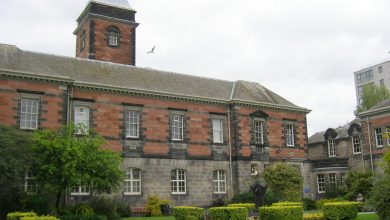List of Universities in Switzerland

Switzerland has one of Europe’s most prestigious higher education systems, with the two highest entries in the QS World University Rankings in continental Europe. The postcard-perfect beauty seen throughout the country, which is notably famed for its stunning Alpine mountains and glittering lakes, adds to the appeal of studying in Switzerland. It’s a true European melting pot, with four official languages, and consistently rates among the world’s best in terms of quality of life. Let’s talk about the application process fees and visas before we go into some of Switzerland’s best universities.
How to Become a Student at a Swiss University
Because there is no centralized application process for international students, you must contact each university directly to apply to study in Switzerland. You’ll be able to apply online, and foreign and admissions departments at institutions should be able to assist you if you run into any issues. Check the language requirements of the courses you’re interested in; after all, this is a country with four official languages! German, French, and English (especially at the graduate level) are the most common languages.
Switzerland student visas
You do not need a visa to study in Switzerland if you are from an EU/EFTA nation.
In order to get a residence permit, you must first register with the local Residents’ Registration Office. You’ll need three completed application forms, your passport, proof that you’ve enrolled in a university and paid for your course, proof of language skills, proof that you have enough money to support yourself, proof of your address, four passport-size photos, and a personal statement, as well as a written commitment that you’ll leave the country once you’ve finished your course. If you must leave for any reason, you must apply for a new residence permit upon your return.
It is required to have health insurance in Switzerland, so make sure you have it (unless coverage purchased in your home country is valid in Switzerland).
If you are not from the EU/EFTA, you must apply to your local Swiss embassy for a multiple entry long stay visa (Visa D). Make sure you apply well ahead of time because your visa will take at least three months to process.
The embassy will tell you exactly what you need to supply in order to get your visa, but it will probably be similar to the list above for getting a residence permit. After completing your degree, you will have six months to find a job in Switzerland, and if you succeed, you will be eligible for a work visa.
You must apply for a residency permit within 14 days of your arrival. See the list above for everything you’ll need to bring.
Related Post: How To Study Abroad With Scholarship
Funding and fees
Living in Switzerland is not cheap. Students’ annual living costs are anticipated to be between CHF20,000 and CHF30,000 (US$19,600 and US$29,400). The country’s inexpensive tuition fees, on the other hand, balance this out. International students, in most circumstances, pay little more than domestic students (some universities operate a slight mark-up).
The exact amount varies, but foreign fees at most top Swiss universities run from CHF1,0002,450 (US$980-2,400) per year. Scholarships from the Swiss government and particular Swiss universities are available.
Switzerland is a beautiful country.
Switzerland is a small landlocked country in the heart of Europe known for its contemporary cities, breathtakingly gorgeous mountains and lakes, high standard of life, and delectable milk chocolate. With four official national languages and a quarter of the Swiss population speaking one of them,
Bilingualism and multiculturalism are at the heart of daily life here, thanks to the influx of people from outside the country.
Zurich
Zurich, Switzerland’s largest city, is well-known as one of the world’s main financial capitals, with the world’s fourth largest stock market and many worldwide corporations’ headquarters.
With its combination of old and modern buildings set against a backdrop of hills and mountains, this metropolitan hub at the tip of Lake Zurich gives lots of opportunity to explore the lovely Swiss scenery.
The cost of living is high, as it is in Switzerland as a whole, however overseas students may benefit from the country’s relatively modest tuition prices. In this section of Switzerland, German is the primary language.
Lausanne
Lausanne, located in the French-speaking area of Switzerland, is a culturally rich city with a gorgeous lake-side position on the banks of Lake Geneva, similar to Zurich. It is Switzerland’s fifth-largest city, famed for its ancient medieval town, which is centered on a massive Gothic cathedral, its closeness to several ski slopes, and its vibrant arts scene.
Lausanne is also home to the International Olympic Committee, has an Olympic museum, and is now bidding to host the 2020 Youth Winter Olympic Games.
Its bustling nightlife is fueled by its popularity among tourists and its large student population.
Geneva
Geneva is the heart of Francophone Switzerland, situated between the lake that bears its name and the French border. On the international scene, it is known as one of the world’s principal centers of diplomacy, with the UN’s second-largest base and a high number of NGOs.
Geneva, like other Swiss towns, is one of the more expensive study abroad options, but in exchange, you’ll get to live in a comfortable, safe, and cosmopolitan environment while attending one of the world’s best institutions.
Bern
Bern, Switzerland’s federal capital and fourth most populated city, is known for its comparatively slow pace of life. The city’s picturesque Old Town is a UNESCO World Heritage Site, featuring charming cobblestone lanes and 15th century structures.
While there is no nearby lake, the meandering River Aare and numerous hiking trails in the surrounding hills and mountains make up for it. There are also a number of museums and galleries, including the Paul Klee Centre for Modern Art, as well as enough bars and nightclubs to keep most people entertained.
Related Post: Top Universities Offering MBA in Germany
Basel
Basel, located in the north of the country near the French and German borders, is a great place to visit if you want to see a lot of different European countries during your trip.
Basel, Switzerland’s third-largest city, is known as the heart of the Swiss chemical and pharmaceutical industries, as well as a major cultural center, particularly in music. The Schola Cantorum Basiliensis, for example, is an international center dedicated to the study of music from the Middle Ages to the Baroque Periods.
Switzerland’s universities
Switzerland’s universities are particularly worldwide in terms of their student and faculty communities, in addition to having a prominent presence in international ranking tables. Four of the top eight Swiss universities are among the top 100 in the world for their percentage of international students, and the country also outperforms other countries when it comes to the percentage of international academic staff members.
The following three Swiss institutions are all in the top 100 universities in the world:
ETH Zurich is a Swiss university (Swiss Federal Institute of Technology)
ETH Zurich (Swiss Federal Institute of Technology), Switzerland’s top-ranked university, is now ranked seventh in the world and is the only non-UK European university in the top ten. The university was founded in 1855 and has a long history of being a leader in scientific and technical sectors, with 21 Nobel laureates among its alumni. ETH Zurich now has about 21,400 students studying on two campuses, one in Zurich’s city center and the other on the outskirts.
Ecole Polytechnique Fédérale de Lausanne (EPFL) is a federally funded polytechnic school in Lausanne, Switzerland.
The Ecole Polytechnique Fédérale de Lausanne (EPFL), the second of the two Swiss Federal Institutes of Technology, was founded slightly earlier than ETH Zurich, in 1853, and ranks closely behind it in international rankings tables. It is ranked 22nd in the world in the QS World University Rankings 2019, and 11th in engineering and technology and 13th in natural sciences in the QS World University Rankings by Subject.
Because Lausanne is located in a French-speaking region of Switzerland, the majority of courses are provided in French, however some are also offered in English. Ecole Polytechnique Fédérale de Lausanne is almost half the size of ETH Zurich, with around 11,100 students.
Zurich University is located in Zurich, Switzerland.
The Institution of Zurich is Switzerland’s largest university, with roughly 25,500 students and the country’s largest array of academic programs. It is currently ranked 78th in the world It teaches and does research across a broader subject spectrum than the more specialized ETH Zurich and EPFL, with facilities located throughout Zurich.
The University of Zurich, which places a strong emphasis on public outreach, operates a diverse range of museums, public libraries, collections, events, and educational programs, including a “Children’s University” and a “Senior Citizens’ University.”
American university of Switzerland.
For those looking for an English program in Switzerland, the American University in Switzerland is a great option. AUS offers business and management bachelor’s, master’s, and doctorate degrees, as well as a variety of specializations, including Aviation Management.
The following are some of the advantages of enrolling at AUS:
Dual degree with Tiffin University in the United States, with the option of studying abroad for a semester.
Professional credentials from Cornell University are available through the eCornell portal.
Guest speakers on a regular basis and networking possibilities
A new curriculum that includes hands-on learning from business professionals and experts in the industry.
AUS is a private institution that offers partial scholarships to students through its financial aid program.
Undergraduate tuition is CHF 18,000 per year, graduate tuition is CHF 15,000 per year, and postgraduate tuition is CHF 20,000 per year.
EU Business School
The EU Business School was founded in 1973 and offers foundation, bachelor’s, master’s, MBA, and doctoral programs in disciplines related to entrepreneurship, innovation, and leadership.
The school invites students to participate in exchange programs both inside Europe and with partner institutions throughout the world, thanks to its global network. EU Business School also provides two English preparatory programs that can be taken as a stand-alone program or as part of a degree program.
The courses are delivered entirely in English.
Bachelor’s tuition is CHF 13,800 per semester; Master’s tuition is CHF 9,600 per semester (per term)
Western Switzerland’s University of Applied Sciences and Arts
Bern, Freiburg, Geneva, Valais, Jura, Neuchâtel, and Vaud are the seven cantons that make up the University of Applied Sciences and Arts of Western Switzerland. HES-SO offers a variety of study options and research opportunities.
Since its founding in 1998, this university has become distinguished for its innovation, ideas, skills, knowledge, and creativity. Art & Design, Business, Management and Services, Engineering and Architecture, Music and the Performing Arts, Health Sciences, and Social Work are among the six faculties. Swiss and non-Swiss students pay CHF 500 in tuition (per semester)
Geneva University is a public research university in Switzerland.
In 1559, the University of Geneva was established. It is still a popular research destination today. This university promotes interdisciplinarity in both teaching and research, which has earned it international acclaim.
You can study law, political science, economics, and other subjects at this Swiss institution. Environmental sciences, genetics, and human rights are just a few of the various fields available. The University of Geneva provides low-cost, high-quality education.
For both Swiss and non-Swiss students, the tuition charge is 500 CHF (per semester)
Lausanne University
The University of Lausanne is a well-known research institute as well as a higher education institution with seven faculties. Their main campus is located on Lake Geneva’s beach.
They offer world-class education and research in three key areas: life sciences and medicine, human and social sciences, and environmental sciences, in addition to the beautiful landscape.
Swiss and non-Swiss students pay CHF 580 in tuition (per semester)
Neuchâtel University
Neuchâtel University is located in the town that bears its name. The institution was founded in 1838 under the name Academy of Neuchatel and consists of four faculties.
The Faculty of Law, the Faculty of Humanities, the Faculty of Science, and the Faculty of Economics and Business are among their four faculties. The university also offers cultural programs, a sports center, and a library, among other things.
(per year) tuition fee: CHF 950 for Swiss students, CHF 1540 for non-Swiss students; semester fee: CHF 515 for Swiss students, CHF 790 for foreign students
Related Post:How To Study In Poland









